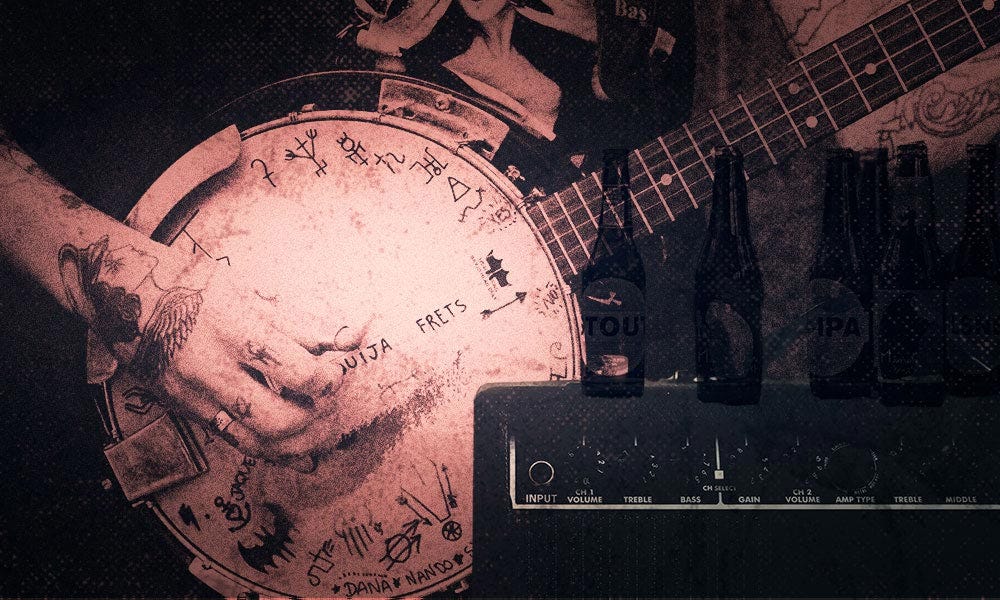
The way Warren ran Sunday nights had a lot in common with the residencies he grew up around in Austin – his father, Champ’s, ‘Singin for your Supper’ at Threadgill’s (Marcia Ball, Butch Hancock, Ruthie Foster, Sarah Elizabeth Campbell, Jimmie Dale Gilmore) and Toni Price’s ’Hippie Hour’ at The Continental Club.
LYLE GUITARS SONGIRD HOW TO
The Momo’s Sunday residency lasted seven years and was a testing ground for Warren where he found his sound, learned how to lead a band, and gave the artists he shared the stage with space to shine - something he had plenty of experience with from the other point of view, having been a sideman for 10+ years. When the residency ended for SAJB, Warren gathered a group of friends and took over Sunday nights under his own name, starting his first solo venture and releasing his first studio record, “Warren Hood”, an eclectic mix of both songs and legendary Austin players including Marcia Ball, Cindy Cashdollar, and Ephraim Owens. Through all of this, Warren played with the South Austin Jug Band when he could, especially as a part of their Sunday night residency at Momo’s on W 6th St in Austin. Leaving Berklee, Warren returned to Austin and was in demand as a sideman, playing with Bruce Robison and Kelly Willis, Alejandro Escovedo, Joe Ely, and joining The Waybacks, a band he would play with for the next ten years.

At Berklee, Warren earned the coveted String Achievement Award, an award chosen by faculty to honor talent and as a vote of confidence on future success. After high school, Warren earned a rare scholarship to Berklee College of Music where he majored in Violin Performance, played with Steven Tyler and formed an acoustic string band, Blue Light Special. Warren later balanced studying at Austin High with touring with Charlie Robison and the South Austin Jug Band. He won classical music competitions, including the Pearl Amster Youth Concerto Competition and the Austin Youth Award, which gave him the opportunity to perform as a soloist on “Lalo Symphonie Espagnole” with the Austin Symphony, conducted by Peter Bay. Warren started playing classical violin at age 11 in the school orchestra, later studying privately with Bill Dick. He cares deeply about the experiences of the people who come to his shows and buy his records and works hard to create memorable live performances and albums. Warren always obliges to answer all of the questions, that’s just his character (the answers are usually something like, “Black Cat”, hard work and listening to the right records, yes, definitely, and older than you think). I know that the hard tail makes for a perpetual motion machine (and Stephane Claveau, in this thread, sounds just wonderful with his hardtail Songbird.in fact, make sure you get his opinion on which to order since he has both), but when I took delivery of my Kingbird, the Mann was immediately my favorite tremolo.People ask Warren Hood a lot of questions at the end of a show – what was the name of that song you played – it sounded like Stephane Grappelli maybe, right after the Doug Sahm cover? How did you learn to play fiddle like that? Are you playing anywhere else this week? How old are you? And I know that this is a high form of historical criticism, but I really think that, had the basic Ronin design been around in the 50's, it would be one of the archetypes which gets copied extensively today.Īnd yes, get the Mann. There's a certain spongeyness to the guitar more than to the pickups.which is why it's such a magical combination. I think that the redwood is where most of the "swoosh" and soak of the attack come from. It's the kind of guitar that a player who is obsessed with attack/phrasing/tonal nuances will LOVE. I think that's obvious with what Dan and David do with theirs. It's the kind of guitar that revels in nuance. You're responsible for what comes out of the guitar because it's gonna show forth whatever you're putting in.Īnd that's also the upside. It's perhaps what people say of amps that are "unforgiving". I think (judging from the 3 Ronins here at my place, using the non-foil one as the control subject) that the pickups themselves are rather "immediate".


I'd second what Qmax and Dan said about the pickups: clarity and quickness.


 0 kommentar(er)
0 kommentar(er)
